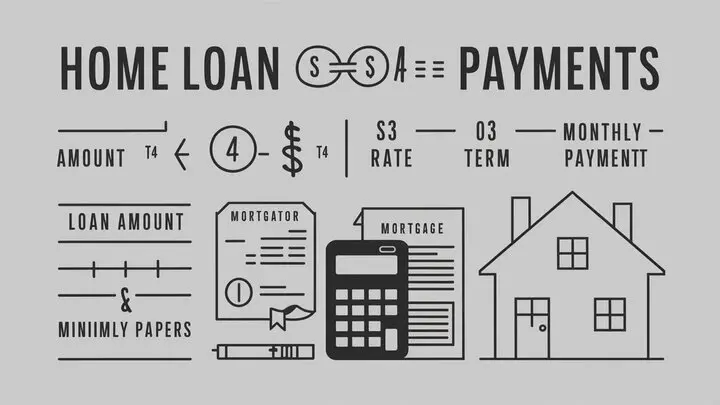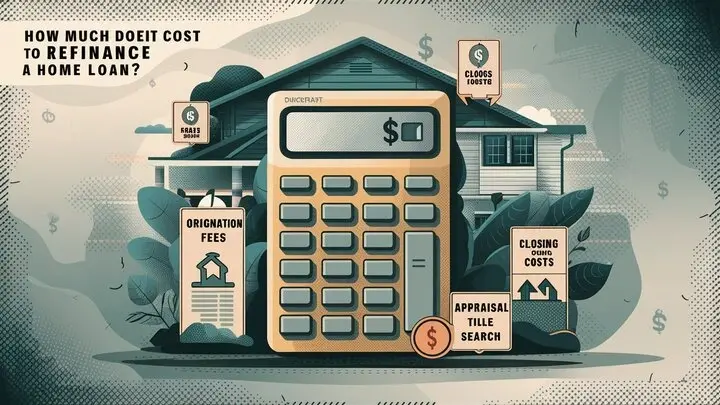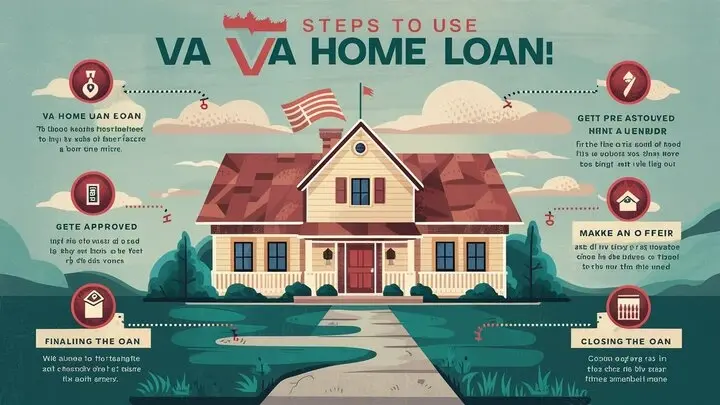-
Posted on: 23 Aug 2024

-
Applying for a home loan to buy your preferred house can be one of the most thrilling and challenging experiences. The process of choosing a loan is also rather troublesome due to multiple options, requirements, fees, and possible drawbacks. But as long as you know what the basic processes are, collect all the documents that are needed, behave financially properly, and work with competent specialists, getting approval for a favorable interest rate is quite possible. Each of the topics noted above has been covered in this guide to ensure that you get the best home loan deal.
Do Your Research When preparing to meet with potential lenders, learn about various loans, their rates, charges, and requirements for applicants. Understand what is a fixed-rate mortgage and which is an adjustable-rate mortgage. Explore the opportunities of first-time homebuyers’ programs on the national and state level. Go through consumer reports on the top national and regional mortgage lenders. Knowledge of what is available will help you compare when you start being given quotations.
Check Your Credit Creditworthiness translates to better mortgage rates, therefore, it is advisable to obtain your credit reports from Equifax, Experian and TransUnion for review and take corrective measures on any undesirable aspects noted. It further enhances credit utilization, which should be done by paying off any outstanding balances, or if one has not built credit history, they should apply for a secured credit card. Increasing your credit score at present can shave thousands of dollars off the cost of borrowing for the whole term of the loan.
Savings are kept for use in a down payment. It is standard for most conventional loans to ask for at least a 5 percent down payment to secure the lowest interest rates. There are first-time buyer programs that can be as low as 3 percent or even zero down to first-time buyers. To achieve the highest form of saving, try to save as much as possible for the down payment. Twenty percent down eliminates having to pay costly private mortgage insurance on a home.
Find The Right Lender Compare shop mortgage rates from several types of lenders; national and regional shops, credit union shops, and online shops. It is also important to compare the interest rates, types of loans available and all the estimated charges to come up with a suitable model to meet your needs. Start getting pre-qualified or pre-approved from several lenders before making an offer to the seller, as this is taken seriously.
Gather Necessary Documents In addition to the basic documentation for the loan application, you will need pay stubs, W-2 and tax return forms proving your income; bank statements reflecting steady income deposits and cash reserves; investment and retirement statements; driver’s license or other photo I. D. for all applicants; and contact information of insurance agents and your attorney. Let your lenders know as soon as possible if you have made large deposits or received gifts recently.
Hire A Buyer’s Agent Buy a home with the help of a professional real estate agent who will work for your benefit during the entire process. They can assist you set your budget, guide you through the different areas and new listings, arrange appointments for viewing and make strategic offers to acquire —including drafting the offer letter contract. In matters concerning inspections and repairs, they will safeguard your interests in the negotiating process.
Bid and Bargain Over The Deal Once you have received an offer from the home seller, proceed to secure loan pre-approval from the lender who issued the best rate, and submit any requested documents as soon as possible. Get an order appraisal and home inspection for more bargaining power as to repairs required and credits on closing costs from the seller. Do not forget to inform your lender of any change in employment, credit score, or savings before closing.
Lock In Your Rate As you approach the closing date, inform your lender of the latest date you desire to have your interest rate set. Locking freezes your rate for the selected duration; rates tend to rise over time. Establish a few days margin of time before the expiration in case of any delay in closing. Shoulder Lock too early and lower rates will be locked in; don’t lock too soon and higher rates may come.
Close On Time Look through the closing disclosure papers in detail before the closing to eliminate unexpected outcomes. Make sure the final loan amount borrowed, the interest rate agreed upon, specific fees charged by the lender, details of the escrow account, and the monthly mortgage insurance if required are indicated. Take cash to the title company or wire your down payment to the title company by the stipulated cutoff time. You sign the final papers and that is when you receive the keys to the new house.
Purchasing a home continues to be an achievable dream for most families that are focused on work and savings. Ensure that you are equipped with education and patience all through the mortgage loan process. Preparation to acquire real estate and collaborating with professional real estate and lending agents determine many pleasant years in the new home. With consistent effort and concentration on the result, the dream of owning a home is achievable.
Raise your credit score effortlessly—dial (888) 803-7889 for professional help!










